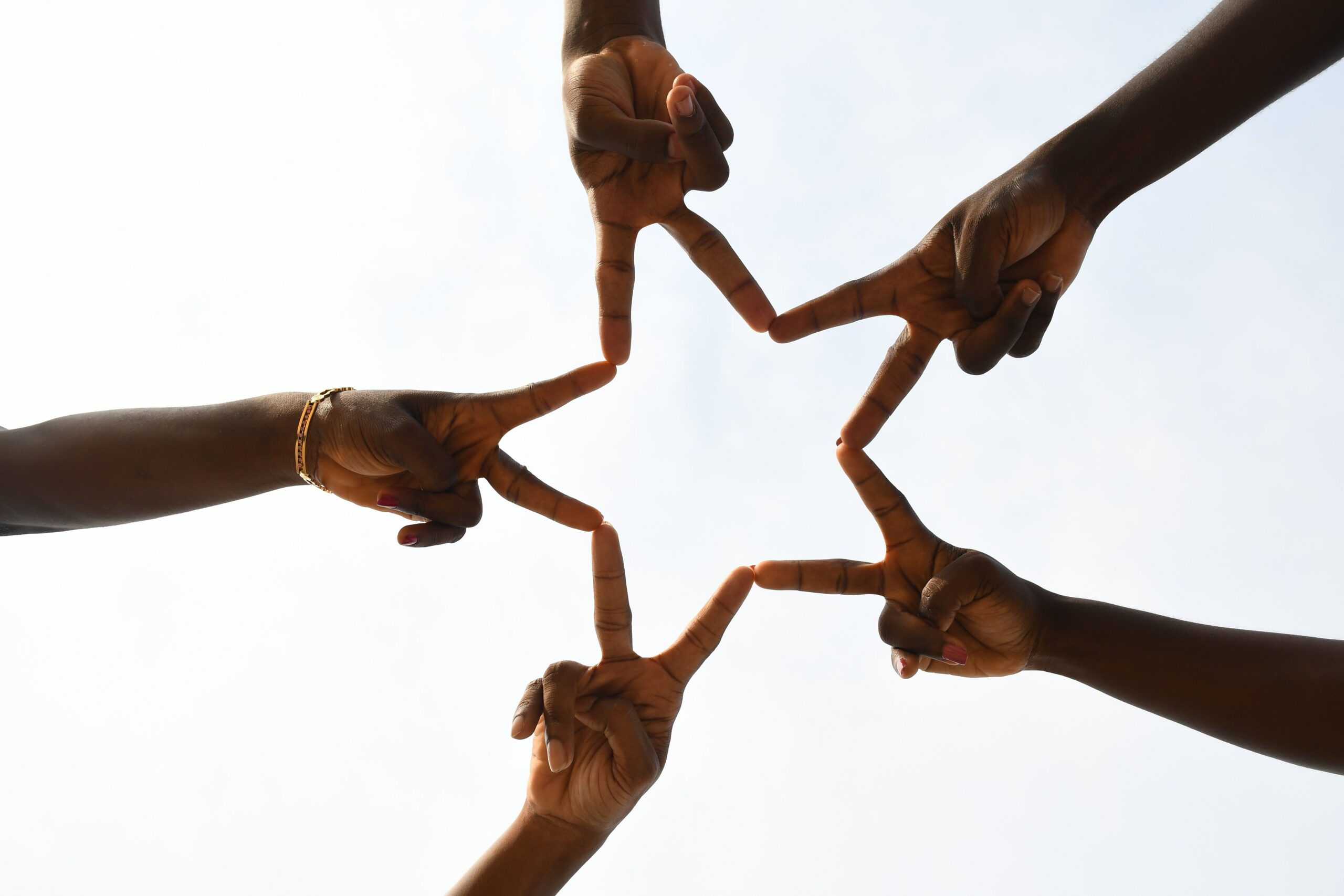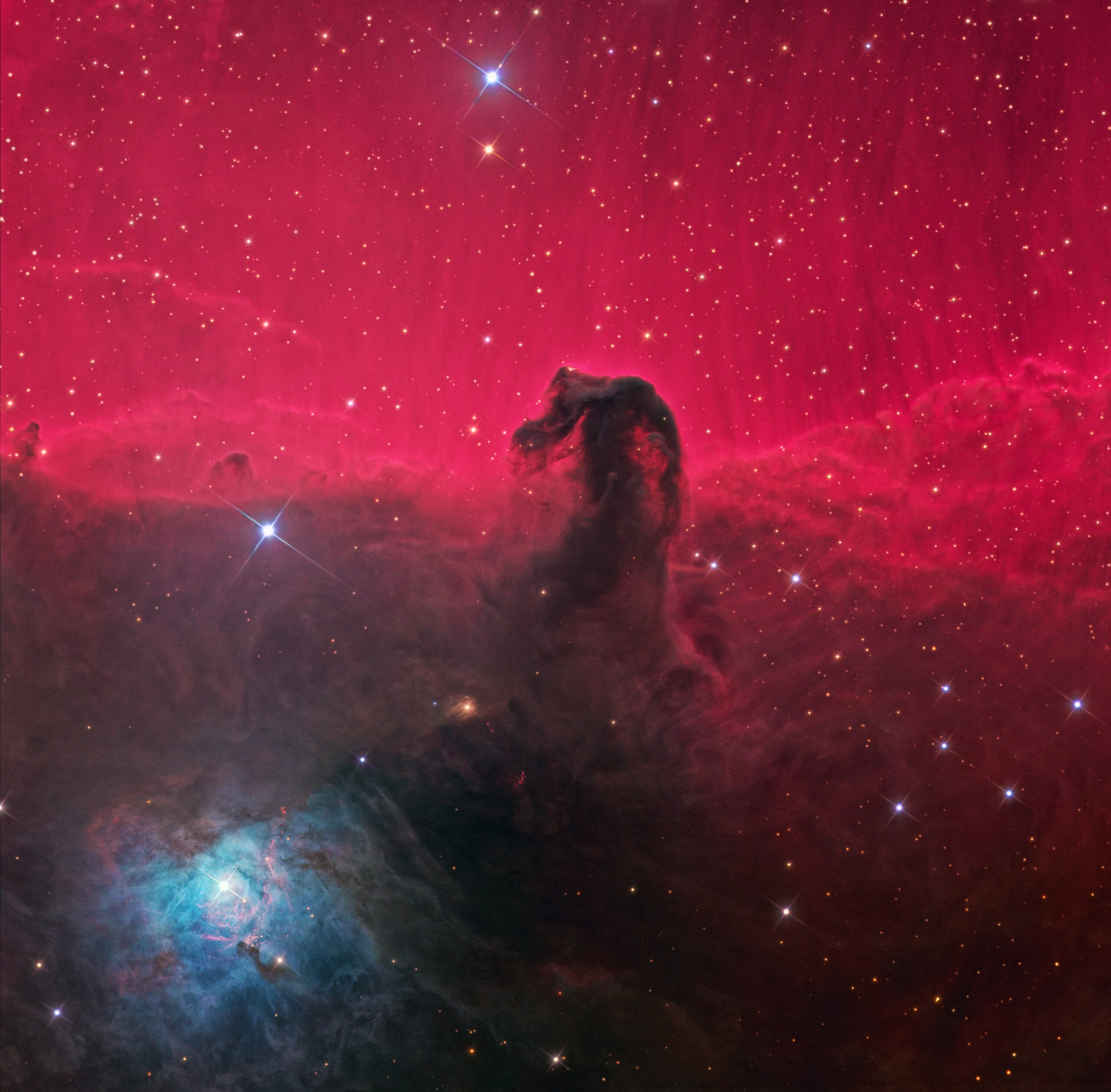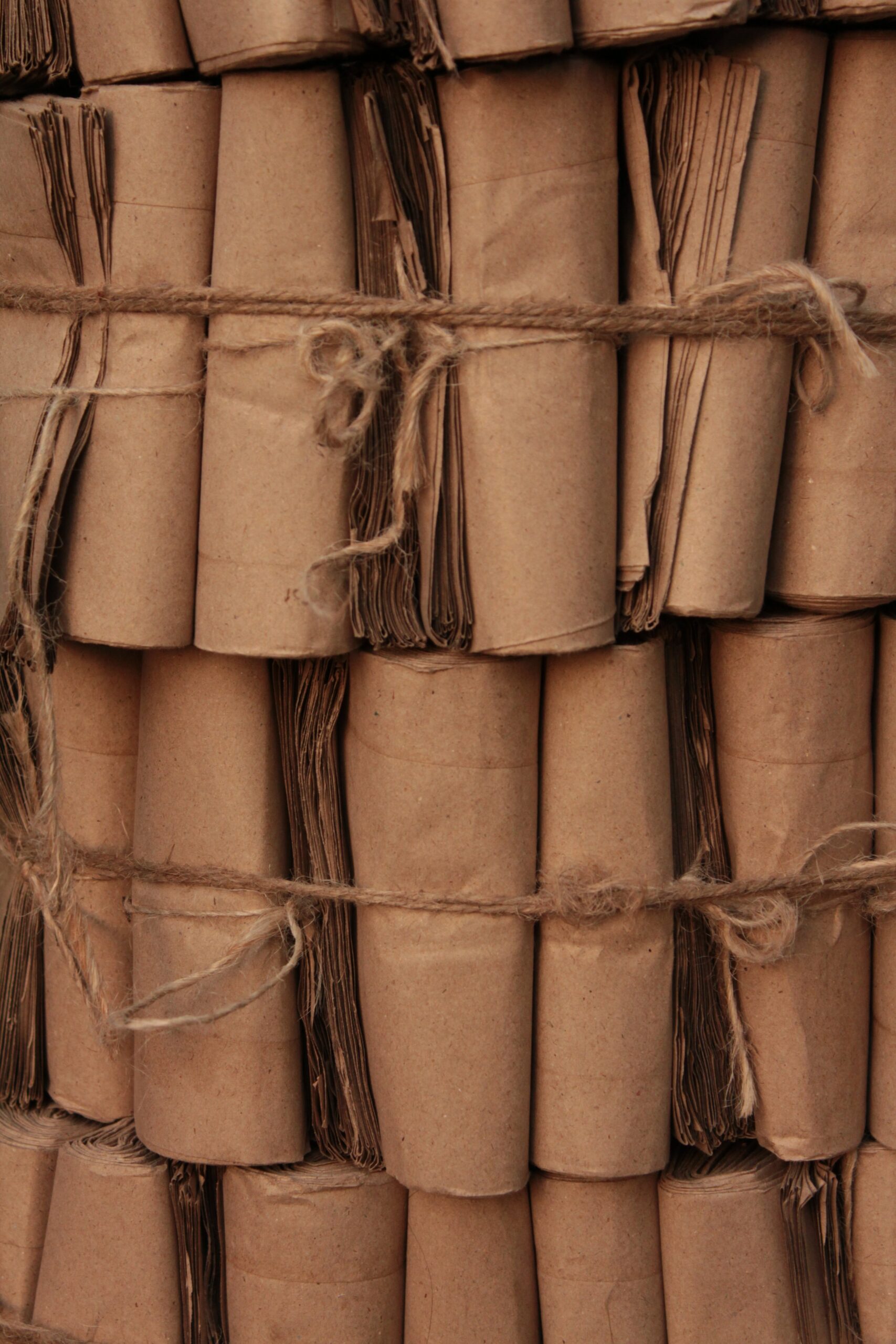The responses to the questions below were taken from an online conversation I had on May 11th, 2022 with Black teaching artists/writers Dale Novella Anderson-Lee, DaShaun Hightower, Jay Howard, Melissa Parke, and Almeta Whitis on how they incorporate healing practices into their writing and teaching. ––Luopu Malakpa
A content advisory: This conversation mentions an act of violence and COVID-related health complications.
What parts of your identity/life experiences have shaped your healing practices?
Melissa: One part of my identity that has shaped my healing practice is being a Black person who has bipolar disorder. Being Black and having any mental health illness is hard. For me it was important to find communities that support me.
Jay: When I was 15 my father was stabbed and almost died. At the time my father and I didn’t really get along. So I leaned into poetry to think about my relationship with my father and also think about what was happening around me. I still use poetry in that way. For me I live my life disconnecting from my emotions, but it’s impossible to disconnect from my emotions when I write poetry. My poetry is where I find that emotion and can spill all the truth on that page. I hide nothing from my poetry and that is how I heal.
DaShaun: Growing up I felt like my emotional responses were sort of restricted. I was into the arts, but to my parents, these things didn’t really translate into something that was viable. So I never processed my emotions. I just put all my emotions into my work. Therefore I didn’t like to share stuff about myself because I felt like my feelings/emotions weren’t valid. Today I’m starting to see more of myself and be more grounded in what I want. I’m developing boundaries and things like that and having conversations with my family
Dale: My art forms are primarily singing, songwriting, or songwriting and music production, and also performance as a singer and a poet. I also make beats and do digital media, videography, photography, and event production. For me wellness kind of seeps into everything. My work is part of my identity and it allows me to explore my various identities. As a Black woman, as a Black Southern woman, as an educator, as someone with something to say about society. It’s part of my wellness practice, because my work is so tied into my identity that when I’m not creating I feel like something is wrong with the world.
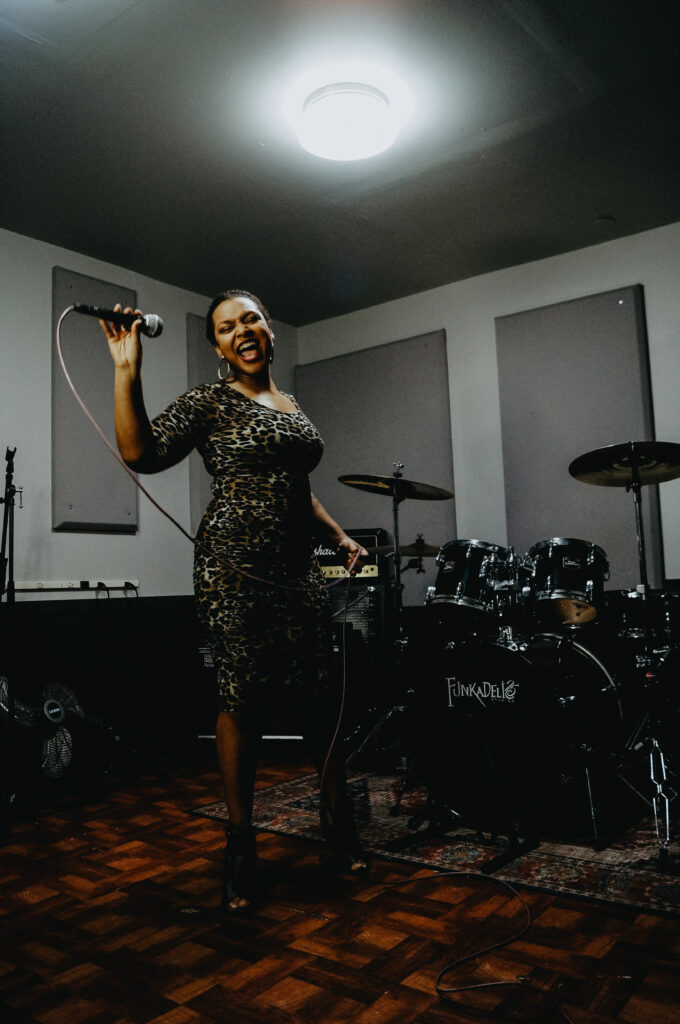
It’s part of my wellness practice, because my work is so tied into my identity that when I’m not creating I feel like something is wrong with the world.
Dale Novella Anderson-Lee
Almeta: In the beginning of this year, I was in quarantine for COVID. I remember sitting at the computer and then getting up to go to the bathroom, and then I woke up wondering how I got on the floor. I lay there for 30 days before I was found and admitted to the hospital. For some reason, spirit had everything because I have a “do not resuscitate” order, but the doctor convinced me to take it off. As a result of all this I’m learning to live and use my art form, which is primarily storytelling. Storytelling has allowed me to immerse myself in history and heal myself. So it’s important that at least we recognize ourselves and where we come from. It’s important we know that everything originates in Africa, and that’s how we heal.
How do these identities shape the conversations you have concerning your own mental health?
Melissa: As I said before, being Black and having any mental illness is hard. I’m also Afro Caribbean, so some of my family members do not even really believe in mental illness. Something that has helped me with my own mental health illness is incorporating healing into my life despite the stigmas. I found other Black people who have bipolar disorder and we had a live healing session online that was centered around Afro-centric self-care. It was probably the most uncomfortable experience I’ve ever had in my life, but after the session I remember so many people reached out to me and told me how healing it was and how much it helped them talk about their mental illness. Being open even when I feel uncomfortable has helped me heal.
DaShaun: I feel that, as Black people, we often won’t look at our parents and say,”You did this wrong.” For example my parents felt that because I was fed, had a roof over my head, and went to school, they had provided for me, and I didn’t need more. So the emotional support that I needed and wanted was missing. I don’t feel like Black kids are allotted that emotional support in certain situations.
Something that has aided me in healing is observing myself. I’ve mainly done that through stream of consciousness, observing my thoughts, and understanding what’s rational. Daily observation has allowed me to move past. I know that if I give too much of my energy away, I tend to get burnt out, and I put a lot of my energy into my work. If you keep letting other people pull your energy from you, you’re never gonna get to what you need to do.
How do you approach having mental health conversations with students?
Melissa: Although I do not work directly with students, as the founder and creator of the Black teaching artists lab I created an Afro-centric social and emotional framework that is designed to create equitable learning experiences for Black learners. I use this framework to train teaching artists and educators who work directly with Black youth. I believe the work that I’m doing is creating a foundation for educators to think about arts education in a different way and to think about how we can integrate Black culture into arts education.
Jay: I like to create works that cause shifts within myself or shifts in other people. I think my work is in conversation with who I am, it’s in conversation with the past, and it’s also in conversation with the future, just looking at the reality of what it means to be Black in America. My hope for my work is that it leaves a footprint. A lot of times I come into my work from a place of trauma or a place of pain. Many of my poems are rooted in depression, my struggle to understand who I am, to recognize love. I talked about this with my high school students this week. My hope is that this work will inspire someone to continue, to move forward. Because my work has helped me continue in my life when I didn’t think I wanted to continue.
Dale: I think it’s important to celebrate students’ various cultures and celebrate who they are. There are a lot of similarities between all the different cultures. When we see those similarities, it’s easier to talk about the differences and easier to come to an understanding around different healing practices.
I’ve learned to model what healthy listening looks like, and I’ve challenged my students to listen without an intention to respond. So when they talk about their mental health issues, I’ve learned to just sit there and listen. If they have a question for me about those things, then I share as candidly as I feel comfortable sharing. In performance spaces, it’s really easy for the students who love being on stage to stand out. I always try to look for the students who haven’t spoken yet. I wonder: What do they like? What other roles can they take in this situation? I’m trying to create equity of voice and to teach them how to listen to each other.
A few years ago, I got my certification as a yoga instructor and began doing meditation visualizations with students. I took a deep dive into that in my own healing practices in order to help facilitate my own creative processes and also to help other people facilitate their creative processes. This shows up in my writing and in my songwriting in the sounds, the frequencies that I use, the key that I decide to write in.
DaShaun: As I said earlier, if you keep letting others pull your energy, you’re never gonna get to what you need to do. So I try to impress that idea upon my students as well. I tell them to observe themselves. I was teaching graffiti to [. . .] kids at the Alternative Learning Center in Brooklyn, and what I did was I forced them to look at themselves. We would create pieces and I would teach them basic lettering, but I would also ask them to think about how they could infuse a portion of themselves into what they were doing. What’s your flag? I asked. What’s your language? Who are you? That allowed them to look at themselves within this alternative learning center that was honestly just not inspiring at all and felt very restrictive. But art gave them that light, and it gives me the opportunity to really look at them and see their potential.
Almeta: In the American educational system we’re told to disregard our feelings, to go strictly on linear logic and rational thought. Art comes from a place of feelings. Art is supposed to make us healthy, mentally, emotionally, spiritually, and physically. When I’ve worked with people, whether they are preschool age or seniors, I’ve tried to get them to go to a place of deep feeling. And whatever that feeling may be, it’s accepted and respected. People say that I give them a safe space where they can let things go, and that’s what we as artists are supposed to do. Being a part of this conversation gives me hope for the future, knowing that there are young people to follow who I’m confident will bring the love, the respect, the infusion of what we need to do as people to move forward, especially as Black people. Personally I just want to keep doing this work as long as I have breath.
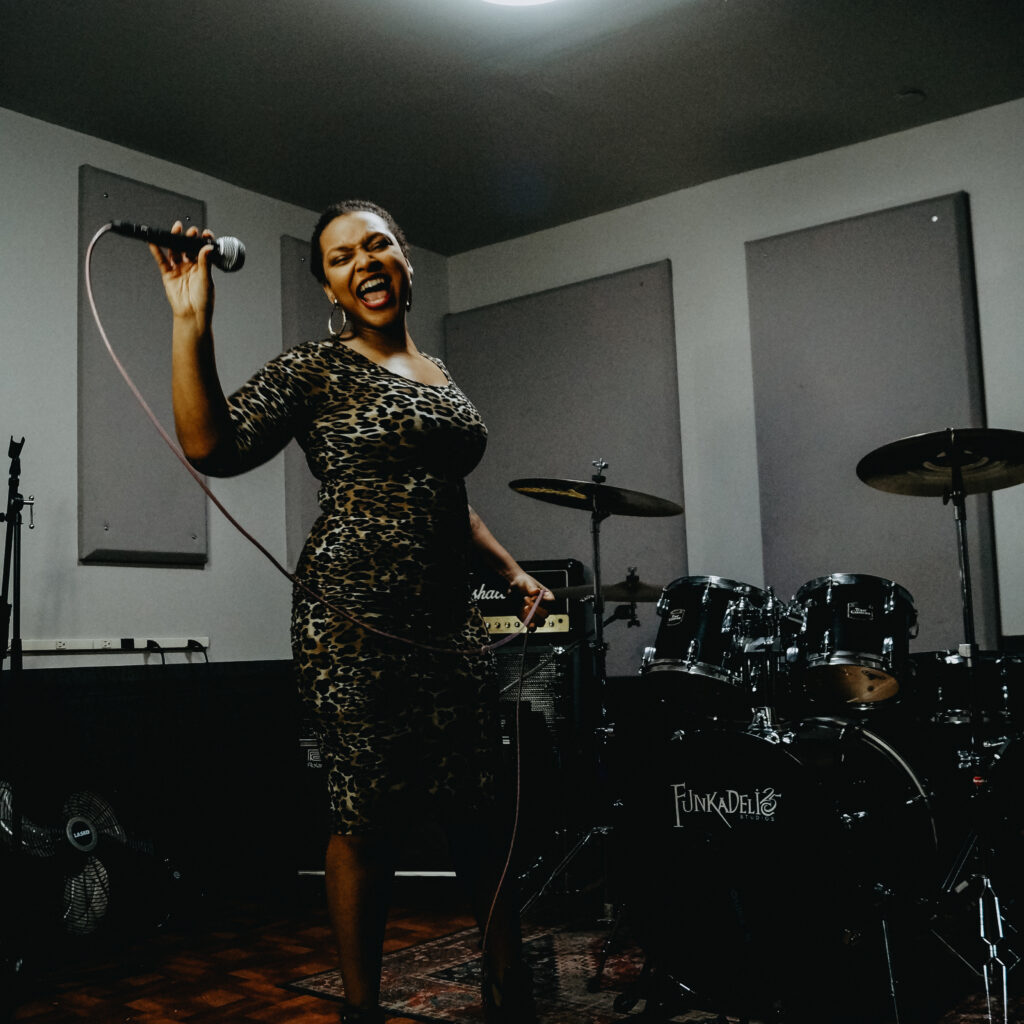
Dale Novella Anderson-Lee (she/her) hails from the South Carolina Lowcountry with a home base in Brooklyn. She is a vocalist and entrepreneur who defies conventions and singular definitions. A woman who wishes to bring the world together through her songs, music, movement, and gatherings, Dale manifests live music events (The Poet Will be Televised), yoga, health & wellness workshops and is a youth educator who believes in the power of music and community. A veteran of the NYC music scene, she debuted her self-produced record SANG BXTCH!! in 2020 and has toured the U.S. and Europe extensively.

Javan Howard (he/him) is a poet and writer from The Bronx, NY. He has facilitated workshops with The New York State Office of Children and Family Services, Voices UnBroken, The GO Project, and Wingspan Arts. He is a Teaching Artist for 92nd Street Y, Teachers & Writers Collaborative, and Usdan Summer Camp For The Arts. He is the TAP Co-Director for Curricula, Mentorship & Facilitation at Community Word Project. Howard’s work has been featured at WNYC News, Black Heart Magazine, Brooklyn Stories Vol. 13., Poets For Peace, Zine #2: Poems For Resilience, Silver Rose Magazine, The Broken Plate, The Watershed Review, and River Mouth Review. He is a recipient of the 2022 Aspen Words Fellowship.
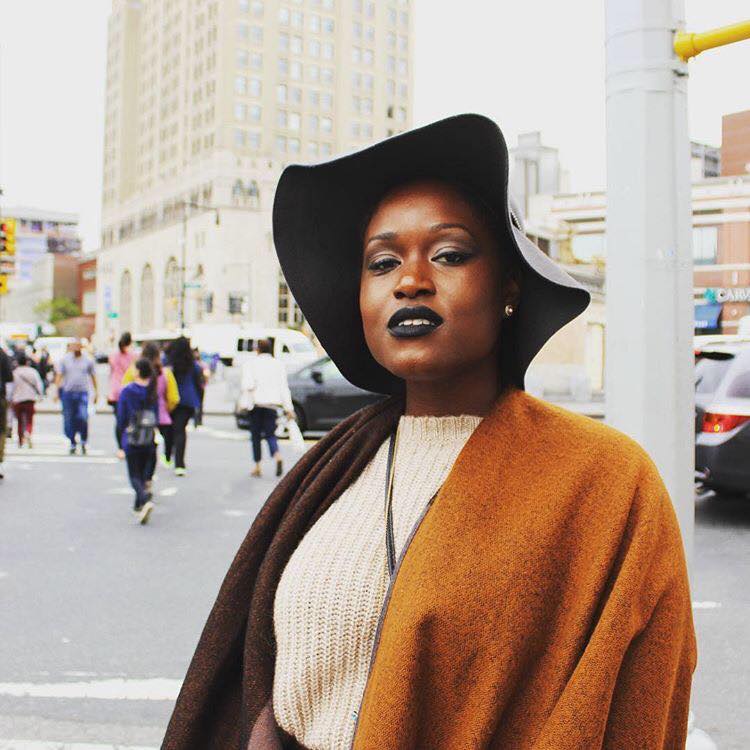
Melissa Parke (she/her) is a Brooklyn-based creative who is making waves in the arts-education world. Parke initially developed her concept for Black Teaching Artist Lab, LLC at the beginning of 2019 while working as a community manager at Brooklyn Creative League—a co-working space in Brooklyn, New York. Surrounded by successful entrepreneurs and immersed in the social changes that were underway in America, Parke was inspired to turn her big ideas into a tangible, new reality.
Almeta Whitis (she/her) fosters exchanges between people within safe and culturally inclusive learning environments through storytelling, song, movement, and theater games. Ms. Whitis earned a BS with honors in Development Planning Economics and a Certificate of Organizational Management from SUNY Brockport, Brockport, NY. A former performing arts professor, she has worked globally with diverse communities of children and adults of all ages and received many awards for her artistry. She founded Chanticleer Productions in 1993, an arts-in-education consulting company, and continues to write, direct, implement and facilitate theater performances and storytelling concerts in New York State.

DaShaun Hightower (he/him) also contributed to this conversation.
Luopu Malakpa (she/her) is an artist who works across various genres and uses multimedia to tell stories. She was a 2022 Hurston/Wright Foundation Fellow at Rutgers University and a Sundress Publications Summer 2022 Residency Fellow at Firefly Farms. She sees her art as a form of activism and a way for her to practice radical self-love/self-care and community building.

